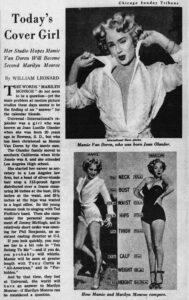The Appalachian Mountains run from Newfoundland in Canada to central Alabama in the USA. Certain regions of this ancient and beautiful range, such as Tennessee, West Virginia, Pennsylvania and Kentucky, contain natural gas, minerals and vast coal deposits. Coal is the major source of fuel for energy production in the USA, with more than a billion tons mined annually. Inevitably there is a price to pay: coal slurry.
Mining is an important industry in Martin County, Kentucky, a small area with a population of fewer than 12 000, 37 per cent of whom live below the poverty line. During the night of October 11 2000, a terrible accident occurred when the bottom of a coal sludge reservoir broke open into an abandoned mine beneath, allowing 1.16 billion liters (306 million gallons) of sludge to seep out of the mineshaft and into two tributaries of the Tug Fork River.
Local residents woke to find Wolf Creek and Coldwater Fork smothered with black waste. Coldwater Fork, a 3 m (10 ft) wide stream, had become a 91 m (100 yd) wide river creeping inexorably forward, covering gardens and ground floors, and polluting wells; the water supply for over 27,000 people was contaminated. All the way down to the Ohio River, hundreds of kilometers of streams were polluted with toxins, killing all the aquatic life including an estimated 1.6 million fish, as well as small mammals such as muskrat and mink.
Jack Spadaro, Head of the National Mine Health and Safety Academy, discovered that the mine owners, the Massey Energy Company, had suffered a previous spill from the same reservoir in 1994. Although the company had announced that steps had been taken to solve the problem, one of their engineers admitted it wasn’t true and that they knew another spill was inevitable sooner or later.
When: October 11 2000
Where: Martin County, Kentucky, USA
Toll: No human lives were lost, but the number of fish, birds, mammals, amphibians and plants that were killed amounted to millions.
You should know: Jack Spadaro headed an investigation into the catastrophe, but the newly formed Bush administration decided to cut it short, fearing that Massey Energy would be charged with serious violations. Eventually they were charged with only two out of eight possible violations, and got away with a fine of $110,000. Jack Spadaro was removed from his job on specious grounds, but has since been re-employed, though demoted, and sent to work in West Virginia.






















